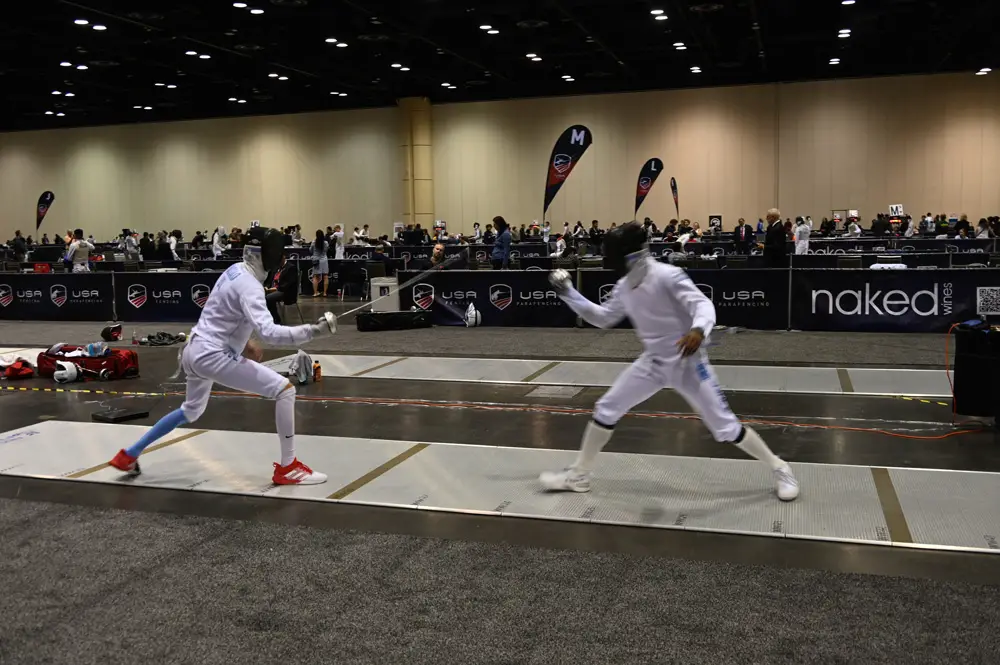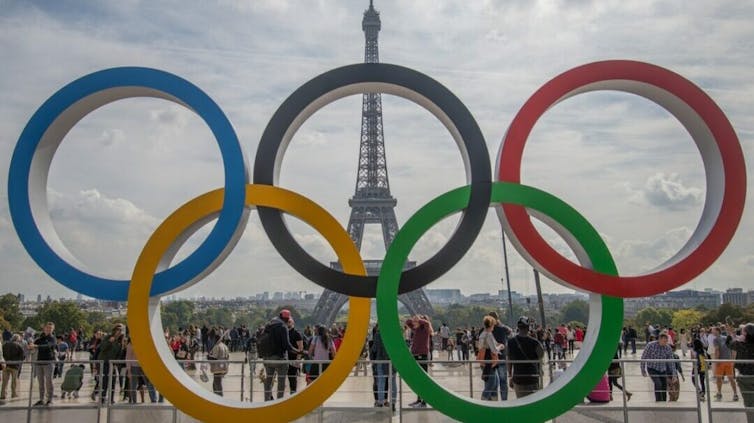
By Ivan Savin
After a long battle, Paris’s beloved bouquinistes will be staying put this summer. The decision, announced on 13 February by the French government, came after considerable public backlash to the police prefecture’s original plan to move part of the iconic Seine booksellers elsewhere for the inauguration of the Olympics Games on 26 July.
Meanwhile, less than six months away from the event, Parisians continue to grumble over a lack of consultations with locals, warnings of gridlocked traffic, closed metro stations, extensive video surveillance and other grievances. So for host countries, what was the point of the Olympics, again?
In academia, the debate about the potential positive and negative effects of large-scale sporting events is ongoing. Although these events are often associated with substantial economic losses, the long-term benefits are the main argument in favour of hosting them. These include the development of material and soft infrastructure such as hotels, restaurants or parks. Big games can also help put the host region on the map as an attractive place for sports and cultural events, and inspire a better entrepreneurial climate.
The pros and the cons of big sporting events?
The cost of these benefits, as the Parisians have realised, is steep. Host countries appear to suffer from increased tax burdens, low returns on public investments, high construction costs, and onerous running cost of facilities after the event. Communities can also be blighted by noise, pollution, and damage to the environment, while increased criminal activity and potential conflicts between locals and visitors can take a toll on their quality of life. As a result, in the recent past several major cities, including Rome and Hamburg, withdrew their bids to host the games.
A common feature of the economics of large-scale sporting events is that our expectations of them are more optimistic than what we make of them once they have taken place. Typically, expenditure tends to tip over the original budget, while the revenue-side indicators (such as the number of visitors) are rarely achieved.

Peter Skitterians/Pixabay, CC BY
When analysing the effect of hosting large-scale sporting events on tourist visits, it is important to take into consideration both the positive and negative components of the overall effect. While positive effects may be associated with visitors, negative effects may arise when “regular” tourists refuse to visit the location due to the event. This might be because of overloaded infrastructure, sharp increases in accommodation costs, and inconveniences associated with overcrowding or raucous or/and violent visitors. On top of that, reports of poverty or crime in the global media can actually undermine the location’s attractiveness.
When big sporting events crowd out regular tourists
In an article published in the Journal of Sports Economics with Igor Drapkin and Ilya Zverev, I assess the effects of hosting large-scale sporting events, such as Winter and Summer Olympics plus FIFA World Cups, on international tourist visits. We utilise a comprehensive dataset on flow of tourists covering the world’s largest destination and origin countries between 1995 and 2019. As a first step, we built an econometric model that effectively predicts the flow of tourists between any pair of countries in our data. Subsequently we compared the predicted tourist inflow in a hypothetical scenario where no large-scale sporting event would have taken place with the actual figures. If the actual figures exceed the predicted ones, we consider the event to have a net positive impact. Otherwise, we consider that it had a “crowding out” effect on “regular” tourists. While conducting this analysis, we distinguished between short-term (i.e., focusing just on the year of the event) and mid-term (year of the event plus three subsequent years).
Our results show that the effects of large-scale sporting events vary a lot across host countries: The World Cup in Japan and South Korea 2002 and South Africa 2010 were associated with a distinct increase in tourist arrivals, whereas all other World Cups were either neutral or negative. Among the Summer Olympics, China in 2008 is the only case with a significant positive effect on tourist inflows. The effects of the other four events (Australia 2000, Greece 2004, Great Britain 2012, and Brazil 2016) were found to be negative in the short- and medium-term. As for the Winter Olympics, the only positive case is Russia in 2014. The remaining five events had a negative impact except the one-year neutral effect for Japan 1998.
Following large-scale sporting events, host countries are therefore typically less visited by tourists. Out of the 18 hosting countries studied, 11 saw tourist numbers decline over four years, and three did not experience a significant change.
The case for cautious optimism
Our research indicates that the positive effect of hosting large-scale sporting events on tourist inflows is, at best, moderate. While many tourists are attracted by FIFA World Cups and Olympic games, the crowding-out effect of “regular” tourists is strong and often underestimated. This implies that tourists visiting for an event like the Olympics typically dissuade those who would have come for other reasons. Thus, efforts to attract new visitors should be accompanied by efforts to retain the already existing ones.
Large-scale sporting events should be considered as part of a long-term policy for promoting a territory to tourists rather than a standalone solution. Revealingly, our results indicate that it is easier to get a net increase in tourist inflows in countries that are less frequent destinations for tourists – for example, those in Asia or Africa. By contrast, the United States and Europe, both of which are traditionally popular with tourists, have no single case of a net positive effect. Put differently, the large-scale sporting events in Asia and Africa helped promote their host countries as tourist destinations, making the case for the initial investment. In the US and Europe, however, those in the last few decades brought little return, at least in terms of tourist inflow.
![]()
Ivan Savin is Associate professor of quantitative analytics and a research fellow at ICTA-UAB, ESCP Business School.





























Leave a Reply